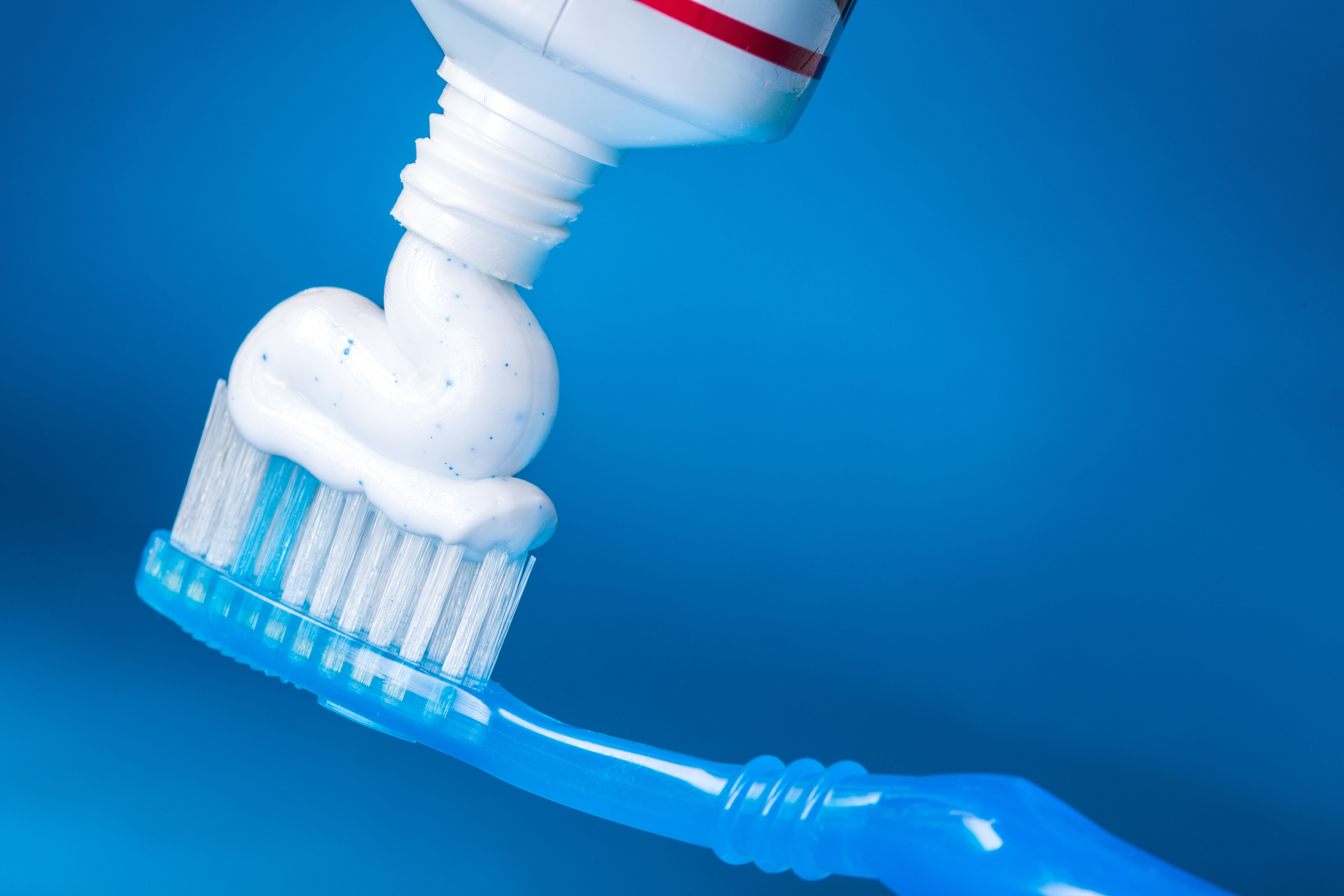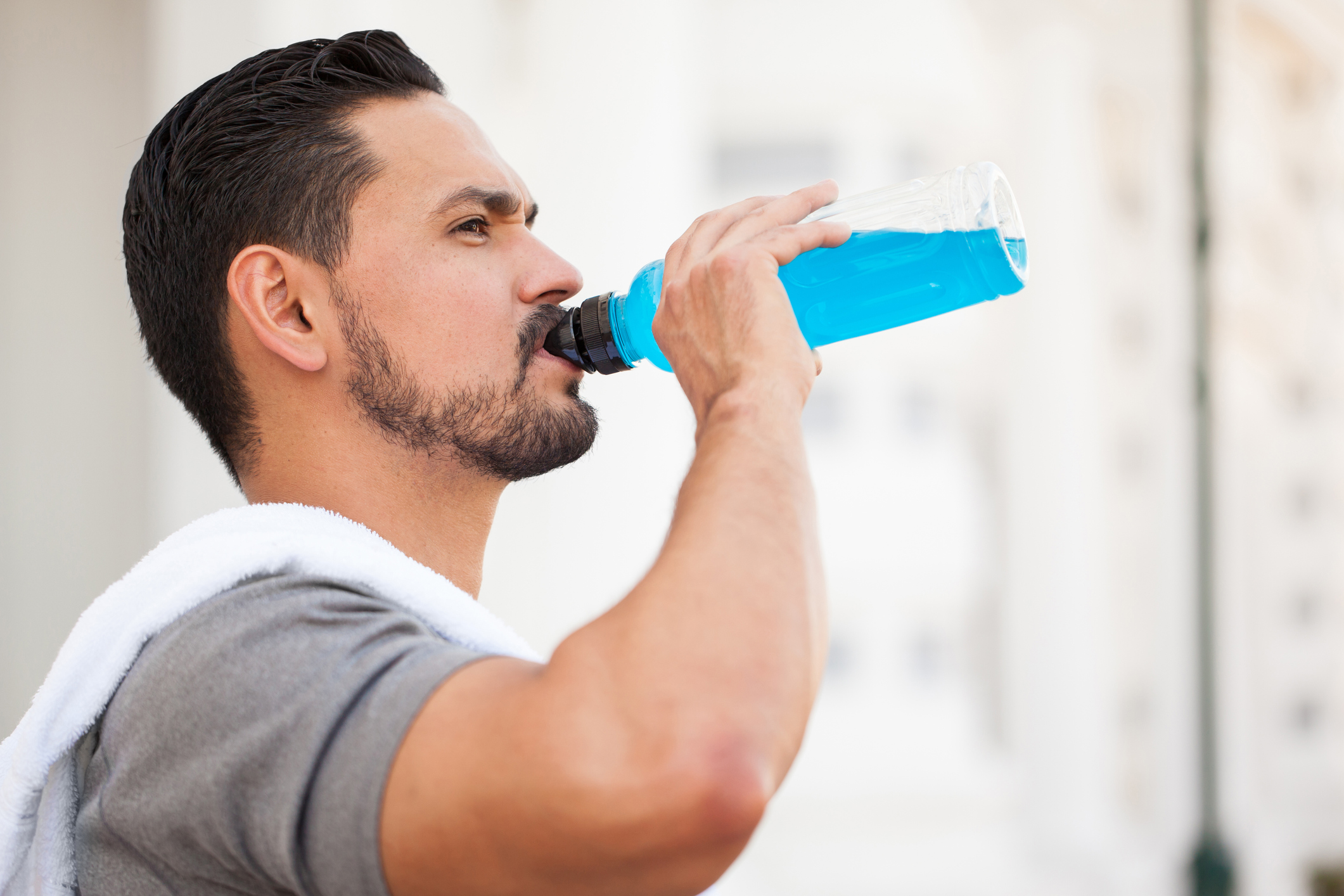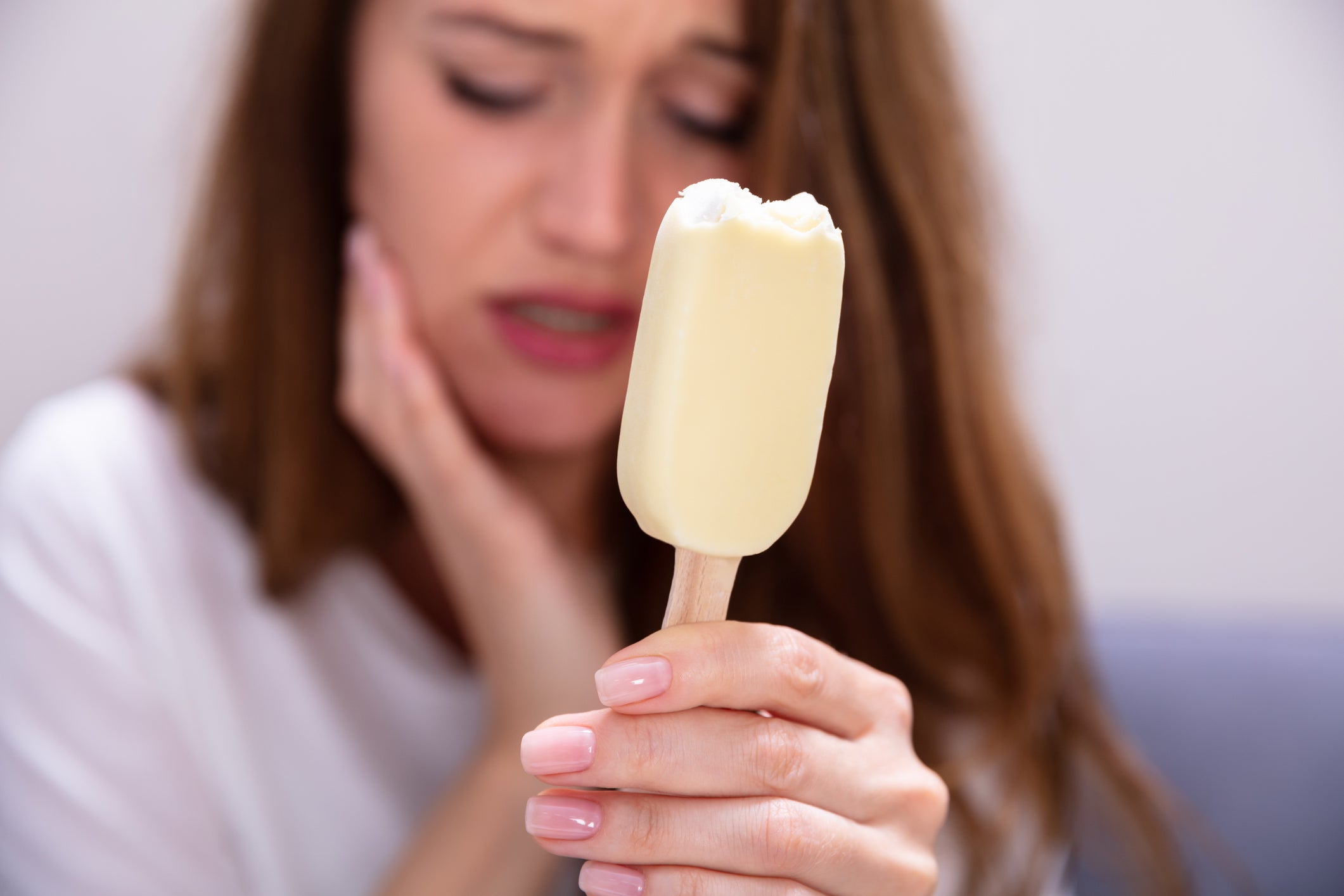-
Oral Hygiene Tips for Busy Professionals

Woman travelling
A Busy Schedule Can Get in the Way of Self-Care
When you’re a busy professional, keeping up with a hectic, fast-paced schedule, it’s easy to put self-care on the back burner. So many things demand your time and attention, whether you’re traveling or just living your life, that you may have trouble keeping up with things that are important to your health. One thing you should never neglect, though, no matter how busy life gets, is your oral health. Here, we offer some tips for busy professionals, to help you keep up with your oral hygiene.
Caring for Your Teeth at Home
Brush your teeth at least twice a day, for a minimum of two minutes each time. Using a soft-bristled brush with a small head and flexible neck, brush your teeth gently in a circular motion, with your brush at a 45 degree angle to the gum line. Start at the back of the mouth, working systematically and taking care to brush along the inner, outer, and chewing surfaces. Brush your tongue to remove bacteria from your mouth, and don’t forget to floss at least once a day. Wait for a few seconds after brushing to rinse so that fluoride has a chance to sit on your teeth. Limit in-between meal snacking, watch your sugar intake, and choose water over fruit juice or sweetened drinks.
Dental Care on the Go
Whether you’re traveling or just racing between appointments, prepare ahead of time to care for your teeth on a busy day. Carry a floss travel pack in your bag or wallet, and bring along some fresh, crunchy, fibrous vegetables like celery, carrots, and cucumbers. These foods have a high water content, which helps to balance the pH level of your mouth, and eating them helps scrape debris from your teeth in the middle of a hectic day when you don’t have time to brush. If you are traveling, clean the inside of your toiletries bag before packing your toothbrush, and let your toothbrush air dry whenever possible, to prevent the growth of microbes. Alternately, consider using disposable toothbrushes so that you know you always have a clean one. If you’re visiting a location where the water isn’t trustworthy, brush your teeth using bottled water.
Amping Up Your Efforts
If being pressed for time is a frequent problem for you, consider investing in an electric toothbrush. Electric toothbrushes have smaller heads, to get into tight spaces more easily, and the rotating brush effectively removes plaque from your teeth. Some can elan your teeth thoroughly in as little as 15 seconds, so that can shave a few minutes off of your daily routine. No matter which kind of toothbrush you use, replace it every two to three months, or immediately after you’ve been ill. If you find you need to replace your toothbrush more frequently than that, you may be applying too much pressure when you brush. Talk to your dentist about improving your technique so that you can keep your mouth clean without damaging your gums and tooth enamel.
Finding the Very Best Dentist
Perhaps the most important part of caring for your dental health is finding a dentist and keeping regular dental appointments to keep your mouth clean and catch any issues before they become serious- and time consuming. If you’re looking for a dentist in New York, why not choose the dentist voted best in the city? At Park 56 Dental Group, we offer pediatric, prosthodontics, endodontics, oral surgery, Invisalign®, emergency, and sedation dentistry, all at the highest level of treatment. We serve the Midtown, Central Park, Upper East Side, Park Avenue, and all surrounding Manhattan and New York areas, with a patient-centered practice that has hours to fit your schedule. Schedule your complimentary consultation today by contacting us online or calling us at (212) 826-2322.
-
How to Choose the Right Toothpaste for Your Unique Dental Needs

Picking the right toothpaste
How hard can it be to choose a toothpaste?
How do you go about choosing a toothpaste? It seems like it should be easy! Once you get to the store, though, it’s easy to be overwhelmed by all the options. With so many toothpastes from which to choose, how do you pick the right one? Here, we offer some helpful tips for choosing the right toothpaste for your unique dental needs.
Know the Basics
Toothpastes contain abrasive agents, flavoring agents, detergents, humectants, and detergents, and are available in gel, paste, powder, or tablet forms. There are two important things to look for in a toothpaste: fluoride and the ADA seal of approval. Fluoride has been proven to protect against tooth decay and help to remineralize teeth, and the ADA (American Dental Association) must verify that a product is effective before that product can display the seal of approval.
Evaluate Your Dental Needs
Think about what you want a toothpaste to accomplish for you beyond just cleaning your teeth. Some common concerns include bad breath, sensitive teeth, plaque, gum disease, tartar, and yellowing teeth. Once you have assessed what you need, look for a toothpaste that fits with your concerns.
- Preventing cavities: Fluoride is a major factor in preventing cavities and strengthening enamel. Choose a toothpaste with mild abrasives, like hydrated silica or calcium carbonate, to remove plaque and surface stains without damaging enamel.
- Tartar control: Bacteria can cause biofilm on the teeth, and this can lead to plaque. When biofilm traps salivary calcium and phosphate, it crystallizes into tartar, also called calculus. While this is removed by the dental hygienist during your cleanings, it can be helpful to use a tartar control toothpaste in between visits. These toothpastes typically contain ingredients like zinc citrate and triclosan.
- Sensitivity: Dental pain is typically due to dentin hypersensitivity. Toothpastes with potassium and fluoride can help with sensitivity, as can toothpastes with strontium chloride, calcium carbonate, or arginine. Using desensitizing toothpaste for at least eight weeks can help reduce dental pain.
- Gum disease prevention: Toothpaste with ingredients that have antibacterial properties, like triclosan or stannous fluoride, can help prevent gum disease by reducing plaque and gum inflammation.
- Controlling bad breath: Brush your teeth for two to three minutes, at least twice a day, with a fluoride toothpaste. Brush your tongue from back to front, or use a tongue scraper. Baking soda can be effective for eliminating halitosis (bad breath), either in a baking soda toothpaste or on its own.
- Whitening teeth: There are several whitening toothpastes on the market, with bleaching ingredients like silica, pyrophosphates, and hydrogen peroxide. Hydrogen peroxide is a good option because it is gentle and won’t cause irritation in your mouth. If you do experience any uncomfortable symptoms, contact your dentist.
Choosing a Toothpaste for Children
Children over age six typically use adult toothpaste. Before that, as long as the toothpaste meets the fluoride and ADA seal requirements, you can choose a fun toothpaste for your children, to encourage them to brush frequently. Look for fun flavors, sparkles and swirls, or toothpaste in a container decorated with fun characters or superheroes. Make sure, though, that you teach children to spit out the toothpaste instead of swallowing it, because ingesting toothpaste can lead to chronic fluorosis for kids.
Partner with the Dentist Voted Best in New York
If you’re looking for a dentist in New York, why not choose the dentist voted best in the city? At Park 56 Dental Group, we offer pediatric, prosthodontics, endodontics, oral surgery, Invisalign®, emergency, and sedation dentistry, all at the highest level of treatment. We serve the Midtown, Central Park, Upper East Side, Park Avenue, and all surrounding Manhattan and New York areas, with a patient-centered practice that has hours to fit your schedule. Schedule your complimentary consultation today by contacting us online or calling us at (212) 826-2322. For more dental advice, check out our other blogs!
-
Can Sports Drinks Rot Your Teeth?

Man drinking sports drink.
A refreshing sports drink might feel like the perfect way to replenish your electrolytes after an intense workout, but have you considered the toll it takes on your oral health? A mounting body of evidence suggests that sports drinks contribute to dental problems, including tooth decay and erosion. Three problematic ingredients found in these beverages include citric acid, sugar, and artificial sweeteners.
The Problems with Citric Acid
Citric acid wreaks havoc on your teeth without your knowledge. As the name suggests, citric acid raises the acidity level in your mouth, compromising the outer layer of your teeth called the enamel. Once the enamel erodes, your teeth become more susceptible to stains and cavities. But that’s not all—citric acid is also known to cause gum inflammation, leading to more serious gum disease if not treated promptly.
The Not-So-Sweet Side of Sugar
Sugar is another common ingredient in sports drinks, which is notoriously linked to dental problems. Unfortunately, sugar feeds the harmful bacteria in your mouth. These bacteria feast on sugar, producing an acidic byproduct that eats away at your enamel. This process leads to cavities and, eventually, rotten teeth.
The Downsides of Artificial Sweeteners
Many sports drink manufacturers claim their products are healthier because they contain artificial sweeteners instead of sugar. While these sweeteners might not directly contribute to tooth decay as sugar does, they can still cause problems. In some people, artificial sweeteners can trigger tooth sensitivities and other dental problems, making them a less-than-ideal choice for good oral health.
Healthier Alternatives to Sports Drinks
Fortunately, quenching your thirst and replenishing your body post-workout doesn’t have to compromise dental health. Consider these viable alternatives:
- Plain water is the best way to hydrate without risking your dental health.
- Coconut water is an excellent natural source of electrolytes, making it a great way to hydrate and refresh without harmful additives.
- Homemade electrolyte drinks are easy to make. Simply mix water with a pinch of salt and a squeeze of lemon for a fast, effective electrolyte drink.
- Iced green tea is packed with antioxidants. Choose the unsweetened variety for a refreshing drink that’s good for your oral health.
- Water sweetened with fruit provides a natural and healthy flavor.
- Carbonated flavored water delivers fizzy satisfaction without added sugar and acid.
- Milk is a surprising source of natural electrolytes. Just avoid flavored or sweetened varieties containing added sugar.
Why Choose Park 56 Dental?
Good dental health requires regular check-ups and cleanings to catch issues early. This is where Park 56 Dental comes in. Our spa-like office caters to a clientele that appreciates personalized, quality dental care. With services ranging from general and cosmetic dentistry to sedation solutions and emergency dental care, we’re prepared to help you smile with confidence. We take pride in treating each patient individually and have been honored with the title of top New York dentist, serving the 10022 zip code since 1997.
Remember, good oral health isn’t just about picking the right drinks—it’s about having the right dental care provider by your side. Contact Park 56 Dental today at (212) 826-2322 for top-notch dental services in NYC.
-
Acid Reflux and Your Teeth

Acid Reflux.
Do you ever get heartburn? Most people do, with about ten percent of Americans suffering daily from the discomfort this condition causes. While heartburn is common, it’s not actually natural, and it’s caused by a disorder called acid reflux or gastro esophageal reflux disease (GERD). And while the most well-known symptom of acid reflux is heartburn, that’s far from the only way this problem affects the body. In fact, chronic acid reflux can be very hard on your teeth. Let’s look at why, and what you can do about it.
First, what is acid reflux? When your digestive system is working the way it’s supposed to, you swallow and your food travels through the esophagus to the stomach. The stomach has acids that digest the food, but there is a muscle that connects the stomach and esophagus, and it closes to keep the food and acid from going back up the esophagus- the wrong way. In people suffering from GERD or acid reflux, this muscle is weak, and it allows the food and stomach acid to travel back up, causing burning in the chest, neck and throat, and a bitter acidic taste.
If you think about the mechanics of acid reflux, you can probably already deduce why this condition would cause problems for your teeth. Your teeth are covered with tooth enamel, which is the strongest substance in the body and protects the teeth from things like bacteria, chemicals, and extreme temperatures. However, over time, this enamel and begin to erode. Stomach acid hastens that erosion, in effect dissolving the enamel and leaving your teeth vulnerable to decay. In fact, in some cases, stomach acid can dramatically decrease the size of your teeth.
How do you know if acid reflux is damaging your teeth? You might notice that your teeth are more sensitive, especially to hot, cold, or sweet foods and beverages. Your teeth also might chip, seem thinner or smaller, or have sharp edges. You may experience pain and irritation in your mouth, and your teeth may become discolored or dark.
If you have acid reflux, what can you do to protect your teeth from these problems?
- Start by controlling your acid reflux. Talk to your primary care physician or a gastroenterologist about lifestyle changes you may need to make. Things like removing trigger foods from your diet, quitting smoking, losing weight, and sleeping with your head raised may all be recommended. You may also choose to use antacids to control your symptoms, but do this sparingly, as this type of medication can cause dental problems.
- Be careful with your teeth. Drink through a straw if you’re drinking anything acidic, like soda, coffee, or juice. Drink water with your meals, and drink water between meals, to continually rinse your mouth. Brush with fluoride toothpaste, but avoid brushing for 30 minutes to an hour after eating, so that you don’t brush your enamel when it’s softened. Eat a piece of cheese or drink some milk after your meals, to neutralize the acid.
- See your dentist regularly. Your dentist can alert you to signs of tooth erosion, and can also offer a variety of treatments to help restore your enamel and offset the damage of acid reflux.
If you’re looking for a dentist in New York, why not choose the dentist voted best in the city? At Park 56 Dental Group, we offer pediatric, prosthodontics, endodontics, oral surgery, Invisalign®, emergency, and sedation dentistry, all at the highest level of treatment. We serve the Midtown, Central Park, Upper East Side, Park Avenue, and all surrounding Manhattan and New York areas, with a patient-centered practice that has hours to fit your schedule. Schedule your complimentary consultation today by contacting us online or calling us at (212) 826-2322.
-
Is Coffee Ruining Your Teeth?

Fresh cup of coffee.
If you’re like most Americans, the day doesn’t quite start until you’ve had your morning coffee. Coffee is a delicious beverage that boosts your energy and may even be good for your heart health, but it can be hard on your smile, leaving your chompers less than pearly white. Beyond the stains it leaves behind, is coffee actually harmful? Could your morning cup of joe be ruining your teeth?
The answer is not as straightforward as you might think. If you’re a coffee drinker, you already know that it is a substance that stains. It will stain your favorite shirt, the upholstery in your car, your best tablecloth, and, yes, your teeth. It stains because it contains plant-based compounds called tannins that leave behind discoloration. The acidity in coffee helps with this staining because acid softens tooth enamel, making it easier for stains to penetrate the teeth. Because the stains seep through the enamel, though, coffee stains are difficult to remove with tooth brushing.
What’s more, as you get older, your tooth enamel begins to change, becoming more vulnerable and susceptible to staining. So, if you have a five cup a day coffee habit, you’re likely to have some noticeable stains after you’ve sustained it for several years. But beyond the yellowing teeth, does coffee do any damage?
There is, of course, the matter of coffee breath. Along with the acids, coffee introduces bacteria into your mouth, and it sticks to your tongue, causing halitosis. Fortunately, this is easily remedied by brushing your teeth after you drink coffee. Then, too, coffee is not alone in bringing bacteria into the environment of your mouth: any drink that isn’t water will do that. Fortunately, your saliva helps counteract the bacteria and allow your enamel to repair itself, but it’s important to brush and floss regularly to prevent cavities. Be aware that the sugar (or syrup) that goes into your coffee is much more damaging to your teeth than the coffee itself.
How can you continue to enjoy your coffee without staining your smile? You can’t, completely, but there are some things you can do to minimize the issue.
- Limit your coffee. Don’t drink coffee all day long, instead sticking to one or two cups of coffee at one time of day.
- Brush your teeth. Brushing with fluoride toothpaste after every cup is best because brushing removes bacteria and fluoride strengthens enamel. Bonus: you’ll lose the coffee breath. It is important to note, however, that you should wait about 30 minutes after your coffee to brush and floss, because immediately after you drink it your enamel will be soft enough to sustain damage from your toothbrush.
- Drink your coffee through a straw. When you use a straw, you can keep most of the coffee away from your teeth, which limits staining.
- Wash your coffee down with water. Water is always a good choice, whether you’re drinking coffee, eating food, or drinking alcoholic beverages. Why? Because water helps to keep the saliva flowing and rinses debris and bacteria away from your mouth.
- See your dentist regularly. Semi-annual cleanings can make a world of difference in the look of your teeth. Beyond just cleaning the teeth, they polish the enamel so that it can do a better job protecting your teeth from stains. Your dentist can also offer teeth whitening treatments to remove discoloration that has already appeared on your teeth.
If you are looking for a dentist to do those semi-annual cleanings and handle all your other dental needs, choose the dentist voted best in New York. At Park 56 Dental Group, we offer pediatric, prosthodontics, endodontics, oral surgery, Invisalign®, emergency, and sedation dentistry, all at the highest level of treatment. We serve the Midtown, Central Park, Upper East Side, Park Avenue, and all surrounding Manhattan and New York areas, with a patient-centered practice that has hours to fit your schedule. Schedule your complimentary consultation today by contacting us online or calling us at (212) 826-2322.
-
Reasons Why your Teeth are Temperature Sensitive

Do you find that eating ice cream or drinking hot coffee causes pain in your teeth? You may have sensitive teeth. It’s a common condition, affecting about 45 million people in the United States, but it can be painful and difficult. What causes teeth to be temperature sensitive? More importantly, what can be done about it?
Your dentist can help you determine the underlying cause of the sensitivity, though the reason teeth become sensitive is typically always the same. Teeth are made of three layers, the enamel, the dentin, and the pulp. The enamel is the hard, outer layer of the teeth, and it protects the softer, inner layers. Below the enamel is the dentin, which is made up of microscopic tubes leading to the innermost layer- the pulp. Within that pulp is the nerve system of the teeth, and dental sensitivity happens when the dentin layers or the nerves are stimulated by something hot or cold. The cause of this stimulation varies.
Cold sensitivity can be caused by tooth decay or gum disease. It can also be the result of brushing too aggressively, using abrasive toothpaste, or using a hard-bristled toothbrush, which can all wear away at the enamel. Tooth grinding or clenching can chip the teeth or damage tooth enamel, which can also cause sensitivity to cold. Receding gums and cracks in a tooth can leave that tooth vulnerable to the cold. If your teeth are sensitive to heat, though, it could have a different cause. Dental treatments like teeth whitening can lead to heat sensitivity, and so can teeth cleanings, root planning, and dental crown or filling placement. If you consume a diet that’s high in acids, found in foods like coffee, tomato sauce, and wine, it can lead to enamel loss and heat sensitivity. People struggling with gum disease often have sensitive teeth, because 80 percent of tooth sensitivity begins at the gum line.
If your teeth are highly sensitive and react to both heat and cold, the best thing to do is see a dentist to determine the cause and the best course of treatment. If the sensitivity is minor, though, you may be able to manage it at home. You can reduce the discomfort of mild temperature sensitivity by making a few changes.
- Instead of letting hot and cold liquids touch your teeth, use a straw.
- Reduce your consumption of acidic foods.
- Change to a softer bristled brush and be careful not to brush too hard.
- Switch to a toothpaste for sensitive teeth.
- Ask your dentist which mouthwash to use; some mouthwashes can irritate your dentin and pulp layers.
- Wear a mouthguard to prevent teeth grinding at night.
There are also treatments that dentists offer to improve dental sensitivity. If you find that your sensitivity is not improving after a few days, talk to your dentist about the best treatment for you. It could be as simple as fluoride therapy, or it could be a more involved procedure like a root canal or a gum graft. Dental restorations like a filling, inlay, onlay or crown can also protect damaged teeth and help with sensitivity. Nervous about seeing the dentist? We provide sedation dentistry for your comfort.
If you are looking for a dentist to help with tooth sensitivity, it makes sense to choose the practice voted Best in New York. At Park 56 Dental Group, we offer pediatric, prosthodontics, endodontics, oral surgery, Invisalign®, emergency, and sedation dentistry, all at the highest level of treatment. We serve the Midtown, Central Park, Upper East Side, Park Avenue, and all surrounding Manhattan and New York areas, with a patient-centered practice that has hours to fit your schedule. Schedule your complimentary consultation today by contacting us online or calling us at (212) 826-2322.
-
What to Eat When You Have a Toothache

What to Eat When You Have a Toothache
A toothache turns mealtime into a miserable experience. The throbbing pain and sensitivity can make chewing next to impossible. But you can’t simply stop eating just because your mouth is giving you grief. Here’s what to eat, what to avoid, and when it’s time to visit a dentist.
Continue reading “What to Eat When You Have a Toothache”
-
Natural Tooth Pain Relievers

If you’ve got a toothache, it can be hard to think of anything else. You may not want to take time off and see your dentist immediately, but what can you do for the constant, throbbing pain? Here, we offer a list of natural tooth pain relievers, to give you a little bit of extra grace before you schedule an appointment to have your tooth examined and find the root cause of your toothache.
- Try a saltwater rinse. Mix ½ teaspoon of salt into a glass of warm water, and when the salt dissolves, rinse your mouth. Because salt water is a natural disinfectant, this can be an effective treatment, reducing inflammation and healing wounds in the mouth while also loosening particles that could be stuck between the teeth.
- Rinse with hydrogen peroxide. Hydrogen peroxide kills bacteria, and can also reduce plaque, heal bleeding gums, and reduce pain and inflammation. It is important to properly dilute the hydrogen peroxide, mixing 3 percent hydrogen peroxide with equal parts water. Swish it around your mouth but do not swallow it.
- A cold compress can alleviate pain. The cold causes blood vessels to constrict, as well as reducing swelling and inflammation. This can help relieve pain, and a cold compress is particularly helpful if your toothache is caused by trauma. Wrap a bag of ice in a towel and hold it to the area for 20 minutes at a time, reapplying every few hours.
- Peppermint tea can have a numbing effect. It’s especially effective to apply a used tea bag, cooled tea bag to the affected area, when it’s slightly warm. Alternately, put a used tea bag into the freezer for a few minutes, then use the bag as a cold compress, applying it to the tooth.
- Garlic has long been known to have medicinal properties. Garlic has antibacterial and antimicrobial properties, and it acts as a natural pain reliever, as well as killing bacteria. To help with a toothache, crush a garlic clove into a paste and apply it to the area, or slowly chew a fresh garlic clove. It has to be fresh garlic, because other forms of garlic don’t contain the allicin that gives garlic its healing properties. As effective as it is, though, garlic does have side effects. Aside from having garlic breath, you may experience bloating, body odor, upset stomach, heartburn, acid reflux, an allergic reaction, or burning in the mouth.
- Thyme has antibacterial and antioxidant properties. It can help to treat toothaches and fight the bacteria that contribute to tooth decay. To get these benefits, you can chew fresh thyme, dilute thyme essential oil in carrier oil and apply it to the painful area, or add a drop of oil to a glass of water and use it as mouthwash.
- Vanilla extract contains alcohol, which can numb pain. What’s more, vanilla has proven antioxidant properties, which facilitate healing. It has to be real vanilla, not imitation, and it works when applied directly to the afflicted area.
- Clove is an ancient toothache remedy. Clove oil numbs pain and reduces inflammation, because it contains eugenol, a natural antiseptic. Dilute the clove oil with a carrier oil like jojoba or sunflower oil, using about 15 drops of clove oil to one ounce of the other oil. Be careful not to swallow it, but just apply the diluted clove oil to your mouth with a cotton ball. A drop of clove oil in a glass of water can also make an effective mouthwash.
- There is actually a plant called a toothache plant. A flowering plant that thrives in tropical and subtropical regions, the toothache plant contains spilanthol, a compound with anti-inflammatory properties. Chewing this plant can numb your mouth, but you shouldn’t use it if you are allergic to daisies, have prostate cancer, use diuretics or drink alcohol, or are pregnant.
- Guava leaves can help heal wounds. They have both anti-inflammatory and antimicrobial properties that are useful in helping with a toothache. To reap the benefits, chew fresh guava leaves or make a mouthwash by boiling guava leaves in water.
- Wheat grass has healing properties. Nutrients found in wheatgrass, including chlorophyll, provide anti-inflammatory, immune-boosting, and bacteria-fighting properties. You can use wheatgrass as a mouthwash but, unlike other mouthwashes, you can also drink it.
- Aloe vera can reduce pain and swelling in the mouth. It has both anti-inflammatory and antioxidant properties and can reduce pain and swelling. If you are taking medication to control blood sugar, though, talk to your doctor before using aloe vera, because it can potentially lower blood glucose to an unsafe level.
These home remedies can help, but the best thing to do for toothache is to see your dentist. A dentist can determine the cause of your toothache and come up with the best plan for treatment. At Park 56 Dental Group, we offer pediatric, prosthodontics, endodontics, oral surgery, Invisalign®, emergency, and sedation dentistry, all at the highest level of treatment. We serve the Midtown, Central Park, Upper East Side, Park Avenue, and all surrounding Manhattan and New York areas, with a patient-centered practice that has hours to fit your schedule. Schedule your complimentary consultation today by contacting us online or calling us at (212) 826-2322.
-
Can a toothache cause problems to the rest of your body?

We know that the health of your mouth has an impact on your overall health, but does pain in your mouth cause problems for your body? When you have a toothache, it can certainly feel like your whole body is involved! Your head may throb, your heart may race, and you may feel nauseous or just generally sick. Is it all in your imagination?
In a word, no. A common cause of a toothache is tooth infection, and a tooth infection can definitely affect your whole body. Tooth infections happen when bacteria enter the tooth because of a chip or a cavity, and infections can lead to an abscess at the root of the tooth. An abscess causes constant, throbbing pain that can radiate to the jawbone, neck, or ear, along with bad breath, a bad taste in the mouth, and increased sensitivity to hot and cold foods.
Left untreated, the bacteria that caused your tooth infection can begin to spread throughout your body. If it spreads to the blood, it can cause sepsis, with symptoms that include an extremely high fever, respiratory trouble, and mental confusion. Your blood pressure may drop, causing you to go into septic shock, and in the worst case scenario, you could die. Another life-threatening condition that can result from a tooth infection is meningitis, which occurs because of inflammation near the brain and spinal cord. Ludwig’s Angina can also be caused by a tooth infection, bringing symptoms of pain and tenderness under the tongue, trouble swallowing, breathing, and speaking, swelling and redness of the neck, neck and ear pain, drooling, fever, chills, fatigue, confusion, and weakness. To avoid any of these complications and illnesses, it’s important to seek prompt medical treatment for a tooth infection. To prevent tooth infections, practice good oral hygiene, eat a nutrient-dense diet, and see your dentist regularly.
You don’t necessarily have to have a tooth infection to have your tooth pain affect other parts of your body. Because of a shared nerve, tooth pain can cause head pain. If you grind your teeth, it can cause muscle stress that results in both a toothache and a headache, and these can also both be caused by a sinus infection or TMJ (temporomandibular joint dysfunction). If your tooth hurts due to a cavity, crack, or impaction, you may get a migraine. It is thought that the connection between tooth pain and migraines has to do with a cranial nerve called the trigeminal nerve, which provides feeling to the face, including the mouth. Pain from a toothache can irritate this nerve and trigger a migraine.
If you have a toothache, don’t put off seeing an experienced dentist, who can determine the source of your pain and prevent it from affecting the rest of your body. At Park 56 Dental Group, we offer pediatric, prosthodontics, endodontics, oral surgery, Invisalign®, emergency, and sedation dentistry, all at the highest level of treatment. We serve the Midtown, Central Park, Upper East Side, Park Avenue, and all surrounding Manhattan and New York areas, with a patient-centered practice that has hours to fit your schedule. Schedule your complimentary consultation today by contacting us online or calling us at (212) 826-2322.
-
How Fixing Your Teeth Can Make You Look More Youthful

When we think of looking more youthful, we often think of anti-aging products, makeup or wardrobe changes, and diet and exercise. However, one key aspect of looking youthful is often overlooked–our teeth. Our teeth can greatly impact our appearance and how we are perceived by others. Whether it’s fixing crooked or chipped teeth, whitening discolored teeth, or replacing missing teeth, getting the perfect smile can make you look years younger. In this blog, we’ll explore how fixing your teeth can make you look more youthful and confident.
Straight Teeth
One of the most common ways fixing your teeth can make you look more youthful is by straightening them. Straight teeth not only look more aesthetically pleasing, but they also give the impression of youthfulness. Crooked teeth can make you look older, whereas straight teeth can make you appear more vibrant and lively. Additionally, straight teeth are often associated with good dental hygiene, which reflects positively on your overall health. Invisalign is a popular method for straightening teeth without the visual distractions of brackets and wires.
Whiter Teeth
Another way to achieve a youthful smile is to whiten your teeth. As we age, our teeth naturally become less white due to wear and tear, diet, and lifestyle factors. Whitening your teeth can instantly lift years off your appearance and give you a more youthful glow. A brighter smile can also improve your self-confidence, leading to a more youthful and outgoing personality.
Fixing Chipped Teeth
Chipped, cracked or broken teeth can also make us look older than we actually are. When we have missing or damaged teeth, we may avoid smiling or try to hide our teeth, which can make us seem less approachable and friendly. Fixing chipped teeth can restore our confidence and make us look more youthful and polished.
Replacing Missing Teeth
Missing teeth affects our speech and eating habits and can also make us look older. When teeth are missing or not properly aligned, it can make our face appear sunken or sagging. Replacing missing teeth can give us fuller, younger-looking faces and boost our confidence when smiling and speaking.
Health Benefits
In addition to the aesthetic benefits of fixing your teeth, there are also numerous health benefits. Straightening teeth can improve your bite and chewing ability, making it easier to digest food properly. Whitening teeth can remove harmful bacteria and improve overall oral health. Fixing chipped or broken teeth can prevent further dental problems such as cavities or infection, leading to improved overall health.
Park 56 Dental’s Cosmetic Treatments Can Make You Look More Youthful Today!
Fixing your teeth can be a simple and effective way to look more youthful and confident. Whether it’s through straightening, whitening, fixing chips or breaks or replacing missing teeth, achieving a perfect smile can do wonders for your appearance and overall health. At Park 56 Dental in New York, we offer a variety of dental services to give you the perfect smile you deserve. Schedule an appointment today and start your journey towards a more youthful and confident you!
RECENT POSTS
categories
- Uncategorized
- Cosmetic Dentistry
- Veneers
- Healthier Teeth
- Teeth Whitening
- Dental Health
- Video
- Dental Emergencies
- Invisalign
- Dental Implants
- Root Canal
- Sedation Dentistry
- Infographic
- Dental Crowns and Bridges
- Dental Anxiety
- Gum Disease
- COVID-19
- Bad Breath
- New York Dentist
- Cut out sugar
- General Dentistry
- Oral Health
- Oral Cancer
- Dry Mouth
- Gum Health
- Toothache
- Dental Sealants
- Cavities



